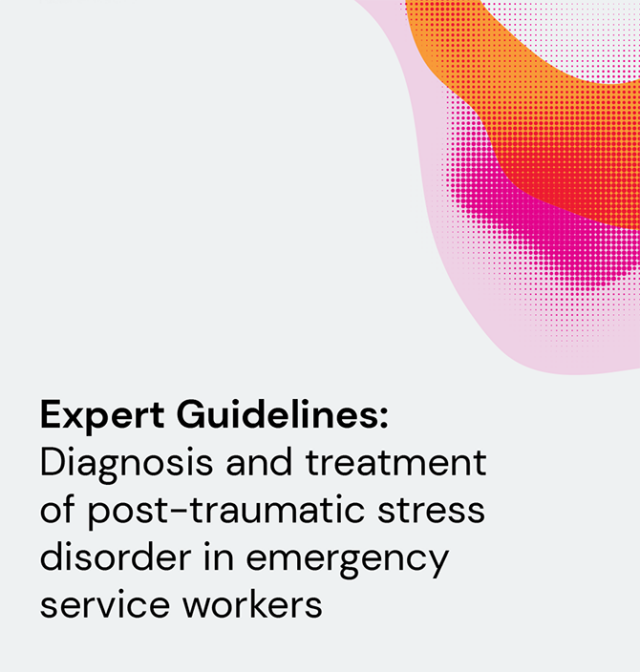Long COVID In Canada: Expert Guidelines For Diagnosis, Prevention, And Treatment

Table of Contents
Diagnosing Long COVID in Canada: Challenges and Approaches
Diagnosing Long COVID presents unique challenges due to the wide variability of symptoms and the absence of a single definitive test. This makes accurate diagnosis and effective management crucial.
Lack of a Single Definitive Test
Currently, there isn't a single blood test or imaging technique that definitively diagnoses Long COVID. The condition's multifaceted nature, with symptoms varying greatly from person to person, makes diagnosis complex. This lack of a specific diagnostic marker often leads to delays in receiving appropriate care.
Symptom-Based Diagnosis
Diagnosis primarily relies on a thorough clinical evaluation by Canadian healthcare professionals, coupled with detailed patient-reported symptom history. This approach emphasizes a comprehensive assessment of the individual's symptoms, their duration, and their impact on their daily life.
- Common Long COVID Symptoms: Fatigue, brain fog ("cognitive impairment"), shortness of breath (dyspnea), chest pain, palpitations, loss of smell or taste (anosmia/ageusia), persistent cough, muscle aches, joint pain, headaches, sleep disturbances, dizziness, and gastrointestinal issues.
- Role of Canadian Healthcare Professionals: Family doctors, specialists (e.g., cardiologists, pulmonologists, neurologists), and other healthcare providers play a vital role in assessing and diagnosing Long COVID based on symptom presentation and patient history. They may use standardized questionnaires to assist in the diagnostic process.
Diagnostic Criteria and Tools
While no single universally accepted diagnostic criteria exist, various guidelines and tools are emerging, including those from the World Health Organization (WHO). These resources offer frameworks for healthcare providers to use when assessing patients for Long COVID. The use of specific questionnaires, designed to track symptom severity and frequency, can assist in monitoring disease progression and treatment effectiveness. Further research is ongoing to refine and standardize diagnostic approaches in Canada.
Preventing Long COVID in Canada: Strategies and Recommendations
While the exact mechanisms leading to Long COVID remain under investigation, several strategies can significantly reduce the risk of developing this condition.
COVID-19 Vaccination
Vaccination remains the cornerstone of COVID-19 prevention and significantly reduces the risk of severe illness and potential Long COVID development. Studies consistently demonstrate that fully vaccinated individuals are less likely to experience prolonged symptoms following a COVID-19 infection.
- Vaccine Effectiveness: Data from the Public Health Agency of Canada (PHAC) shows a strong correlation between vaccination and reduced hospitalization and death rates, suggesting a concurrent reduction in Long COVID risk.
Early Treatment of COVID-19
Early intervention and treatment of COVID-19 are crucial in minimizing the potential for long-term complications. Access to timely and appropriate medical care is paramount.
- Antiviral Treatments: Antiviral medications, such as Paxlovid, are available in Canada for eligible individuals and can reduce the severity and duration of COVID-19, potentially lessening the chances of developing Long COVID.
General Health and Wellness
Maintaining a healthy lifestyle can play a supportive role in preventing and managing Long COVID.
- Healthy Lifestyle Choices: A balanced diet, regular physical exercise (as tolerated), stress management techniques (yoga, meditation), and sufficient sleep contribute to overall well-being and may help mitigate the risk or severity of Long COVID.
- Canadian Resources: Many Canadian organizations offer resources and support for healthy living, including government health initiatives and community programs focusing on nutrition, physical activity, and mental wellness.
Treating Long COVID in Canada: Current Approaches and Future Directions
Managing Long COVID requires a comprehensive, multidisciplinary approach.
Multidisciplinary Approach
Effective Long COVID care necessitates a collaborative effort involving various specialists.
- Healthcare Professionals' Roles: Physicians (family doctors, specialists), physiotherapists, occupational therapists, mental health professionals (psychologists, psychiatrists), and other healthcare providers work together to address the diverse symptoms and needs of individuals with Long COVID.
Symptom-Specific Treatments
Treatment focuses on managing individual symptoms.
- Available Treatments: Treatments vary depending on the presenting symptoms. Fatigue management might include pacing activities and cognitive behavioural therapy. Pulmonary rehabilitation can help with shortness of breath. Pain management strategies may include medication and physiotherapy. Mental health support is crucial for addressing anxiety and depression often associated with Long COVID.
Ongoing Research and Clinical Trials
Significant research efforts in Canada are focused on improving Long COVID treatment and management.
- Research Initiatives: Canadian researchers are actively investigating the causes, mechanisms, and effective treatments for Long COVID, contributing to a global understanding of this condition. Numerous clinical trials are underway exploring novel therapeutic approaches.
Access to Care and Support
Access to appropriate care and support remains a challenge for many Canadians experiencing Long COVID.
- Canadian Resources: Provincial and territorial health systems are working to improve access to comprehensive care. Support groups and online communities provide valuable peer support and information sharing for individuals affected by Long COVID. Government initiatives are underway to address the needs of this growing population.
Conclusion: Managing Long COVID in Canada – A Call to Action
Long COVID in Canada presents significant challenges, demanding a multi-faceted approach involving improved diagnosis, effective prevention strategies, and accessible treatment options. Vaccination, early COVID-19 treatment, and a holistic, multidisciplinary approach are vital for managing this condition. If you suspect you may have Long COVID, consult your healthcare provider for assessment and support. Increased awareness, further research, and expanded resources are crucial for effectively addressing the long-term impacts of Long COVID in Canada. Learn more about available resources and support for managing Long COVID, finding Long COVID support in Canada, and exploring Long COVID treatment options today.

Featured Posts
-
 Key Figures In Joshlin Smith Trafficking Network To Be Sentenced
May 29, 2025
Key Figures In Joshlin Smith Trafficking Network To Be Sentenced
May 29, 2025 -
 Krasnici Dpk Ultimatum Kurtiju Vlada U 48 Sati Ili
May 29, 2025
Krasnici Dpk Ultimatum Kurtiju Vlada U 48 Sati Ili
May 29, 2025 -
 Aj Odudu Addresses Mickey Rourkes Comment Following Celebrity Big Brother
May 29, 2025
Aj Odudu Addresses Mickey Rourkes Comment Following Celebrity Big Brother
May 29, 2025 -
 Ramalan Cuaca Bali Sebagian Besar Berawan Hujan Lokal
May 29, 2025
Ramalan Cuaca Bali Sebagian Besar Berawan Hujan Lokal
May 29, 2025 -
 Do Covid 19 Vaccines Lower Your Chances Of Developing Long Covid
May 29, 2025
Do Covid 19 Vaccines Lower Your Chances Of Developing Long Covid
May 29, 2025
